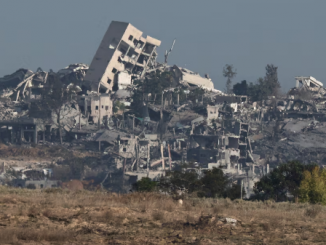
| Published June 19, 2025
“The broader Lebanese population sees little strategic or national benefit in entangling their fragile country further in Iran’s own agenda, particularly after the heavy toll they have already paid,” one analyst told Breaking Defense.
In a surprising turn during the ongoing Israel-Iran conflict, Hezbollah—a longtime Iranian ally—has reportedly decided to stay out of the fight. Despite its deep ideological and military ties to Tehran, the Lebanese militant group is signaling restraint, citing internal weakness, domestic political pressure, and fear of sparking another devastating war with Israel. This development marks a major shift in the regional power dynamic, potentially isolating Iran and reshaping expectations about the role of proxy militias in the Middle East’s most volatile conflicts.
🔍 Key Developments
-
Hezbollah has declared it will stay out of the current Israel–Iran confrontation—opting to stand down, even as its close ally Tehran is under attack.
-
The group’s restraint follows an intense 2024 conflict with Israel, which saw its military leadership and arsenal severely diminished—leaving Hezbollah militarily weakened.
-
Lebanese authorities have warned Hezbollah against escalation, reinforcing the message that Lebanon will not be dragged into another war.
📉 Why Hezbollah Is Holding Back
-
Military Degradation from the 2024 War
Losses of seasoned commanders—including Hassan Nasrallah—and destruction of weapons depots have reduced Hezbollah’s readiness. Estimates suggest they maintain below 30 % of their pre-war firepower. -
Domestic Political Pressure in Lebanon
A newly formed technocratic government under PM Nawaf Salam, backed by Parliament Speaker Joseph Aoun, has prioritized stability and reconstruction. Widespread public fatigue makes another war deeply unpopular. -
Risk of Triggering Wider Conflict
Intervening could provoke a devastating Israeli response, threaten Lebanon’s fragile recovery, and risk sparking a civil war if non-state armed groups re-enter the fray. -
Diplomatic Messages and State Sovereignty
The Lebanese Armed Forces and government have explicitly communicated that state authority over armed force will be enforced—Hezbollah faces mounting pressure to comply.
 Implications
Implications
-
Iran Faces Strategic Isolation
Hezbollah’s absence signals a weakening of Iran’s “Axis of Resistance,” leaving Tehran more isolated militarily and politically in its confrontation with Israel. -
Israel Gains Tactical Breathing Room
With Hezbollah holding back, Israel can divert fewer resources to its northern border and concentrate more fully on Iranian targets—reducing the threat of a two-front war. -
Lebanon Avoids Wider War—for Now
Hezbollah’s restraint helps prevent Lebanon from being dragged into a broader conflict, preserving national stability and averting further economic and humanitarian crisis. -
Proxy Deterrence Appears Effective
Israel’s 2024 military campaign may have successfully degraded Hezbollah’s capabilities to the point where deterrence—not ideology—is now guiding its actions. -
Shifting Power Dynamics in the Region
Other Iranian-backed groups may follow Hezbollah’s lead, reassessing their risk tolerance and exposing Iran’s limited control over its network of proxies. -
Signals Possible Realignment in Lebanon
Domestic pressure on Hezbollah from Lebanon’s political leadership and public may embolden state institutions to assert more authority over foreign policy and armed groups. -
Temporary Calm May Be Misleading
Hezbollah’s silence now doesn’t guarantee long-term neutrality. If U.S. forces intervene or Iran’s regime becomes critically threatened, Hezbollah could re-engage under direct orders from Tehran.
 Overall Takeaway:
Overall Takeaway:
Hezbollah’s decision to sit out the Israel-Iran conflict marks a significant shift in Middle East dynamics, signaling Iran’s growing regional isolation and a weakened proxy network. It also highlights Lebanon’s desire to avoid another war and suggests that Hezbollah’s priorities may now be shaped more by survival and domestic pressure than blind loyalty to Tehran. While this restraint reduces the immediate threat of regional escalation, it may be temporary—tied to evolving battlefield conditions and Iran’s long-term strategy.





Be the first to comment